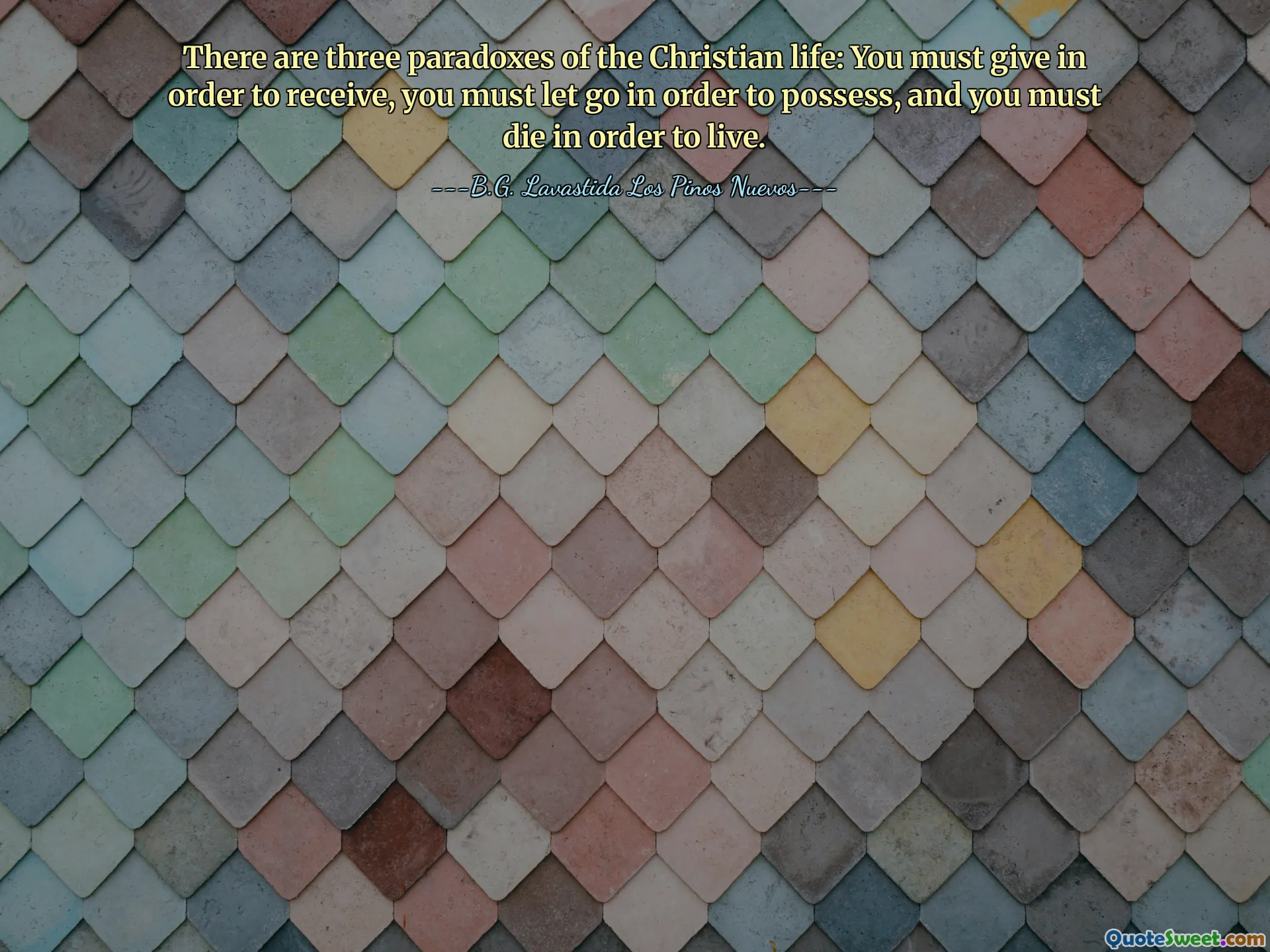
There are three paradoxes of the Christian life: You must give in order to receive, you must let go in order to possess, and you must die in order to live.
This quote encapsulates the deeply paradoxical nature inherent in Christian spirituality and perhaps in many aspects of human experience. Each paradox challenges conventional understanding and invites profound introspection. The first paradox, "You must give in order to receive," emphasizes the principle of generosity and selflessness. It suggests that true abundance comes not from hoarding or selfishness but from extending oneself to others. Giving becomes a conduit through which blessings and fulfillment flow back, illustrating an ethic of reciprocity that transcends mere transaction.
The second paradox, "you must let go in order to possess," speaks to detachment and trust. Psychologically and spiritually, clinging too tightly to material or even intangible possessions can hinder true ownership or appreciation. In letting go—be it of control, expectations, or attachments—we create space for growth, acceptance, and the genuine possession of what matters most, often in ways that defy logic.
The final paradox, "you must die in order to live," is perhaps the most profound, aligning with themes of sacrifice, transformation, and rebirth. Within Christian theology, this echoes the notion that dying to one’s old self or temptations leads to spiritual renewal and eternal life. More universally, it suggests that only when one surrenders ego or undergoes metaphorical death can one truly embrace authentic living.
These paradoxes serve as potent reminders that life’s deepest truths often exist beyond straightforward reasoning. They encourage embracing mystery, faith, and humility in the journey of personal and spiritual development.
---B.G. Lavastida Los Pinos Nuevos---







